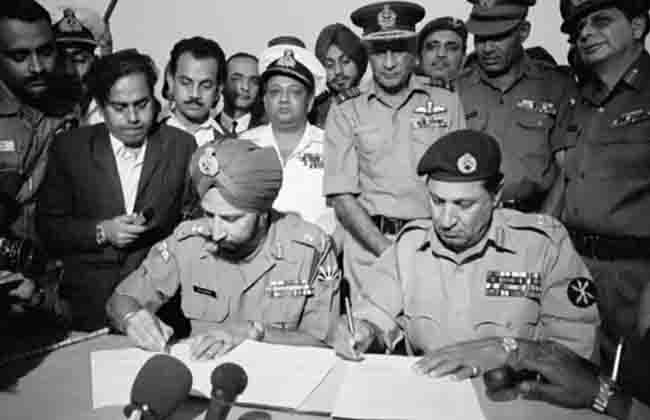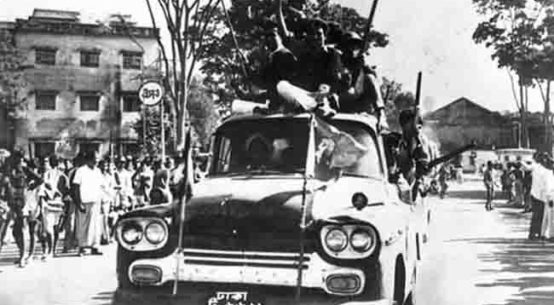
There are several terms to describe what happened in 1971 that led to the birth of Bangladesh. It’s called “Muktijuddho”, “Shadhinota juddho”, “Jonojuddho” etc. There could be more. But they carry slightly different meanings. One part is common to all that is the Juddho (war) part but the others differ. It would seem that we clearly agree on the fact that there was a fight, a war, a conflict; the other part has different meanings. It’s a liberation war and a war of independence, both officially and socially.
Semantically, shadhinota is more concrete as its independence which was declared formally on March 26, 1971 but was occupied by Pakistan until their defeat on December 16, 1971. Hence it’s a concrete fact and no challenge to this fact is possible. One may argue with the quality and quantity of the same but the fact remains as concrete.
Muktijuddho is a more complex and even problematic term because “liberation” doesn’t have one meaning or connotation. In fact liberation is a complicated value judgmental word which signifies both an abstract and a concrete reality. It can mean different things in different realities also. It has therefore borne the burden of proof of liberation to all who choose to use it. To each his own liberation is both the solution and the problem. Who decides who is liberated and who doesn’t?
A soldier’s history to people’s history
Our narratives of 1971 are explicitly political acts in most cases because they aim to establish claims of achievement. It’s written within two broad systems, laying claims to the credit of birthing Bangladesh or trying to dismantle the claim and suggesting the alternative claimant is right. There is very little work done outside this dual framework model.
So the narrative construction relating to history is more about the present than the past. It has made the writing itself an act of political activism in most cases. Hence, it’s part of the power play of the ruling classes, not an authentic history of a people who were committed to defending a state called Bangladesh.
The point is who remembers and who decides to remember? If we assume that power comes from the barrel of guns as Mao said, rest of the players other than gun bearers become redundant. Mao may have said so to explain the need for violence initiate social change and capture state power. But it’s also a reflection of old style political expressions and ideas and certainly is more akin to bourgeois than revolutionary thought as history shows. In some ways, it reflects the limits of contemporary Maoism as China itself surges forward powered by a market economy not military clout.
Yet what Mao was saying also reflected certain socio-historical beliefs including physical force as a decider of history. Many think this is the case in most societies where the armed powerful symbolizes the highest level of strength. Bangladesh is no different and the tendency to equate courage with soldiers is common.
Thus we have Kolom shoinik (pen soldiers meaning writers and journalists), Shobdo shoinik (broadcast soldiers) and so on. So the ultimate anointment of patriotism is imagined to be with the holder of guns. Other participants become lesser souls. Physical courage dominates what we consider to be the quality of greatness)
People and war
The war has therefore moved from an inclusive to all space to a much narrower one where the gun bearer and politicians hold sway. The rest of the population is made secondary and have become lesser beings. This is not uncommon in any war but the 1971 war was not a conventional war. In this practically everyone was part of it including in providing military services. Formal forces were active in the resistance phase which was possible because of massive public/informal support.
The formal warriors left the territory and sought sanctuary in India but those who stayed back held and sustained the war. When FFs returned to carry out operations, they were possible because of the support, logistics and risks undertaken by those who suffered the local people. But in historiography such people don’t exist. Even in the final phase, the Joutho Bahini would not have been able to enter Bangladesh if the villagers hadn’t decided to let them in as Gen. Aurora Chief of the 1971 eastern command said.
But the war itself is one reality and narrating the war is another. While one is for seeking a state the other is for establishing and continuing control of the state after birth. So the reality of the war and the reality of the narrative are different. Unless historians distance themselves intellectually from power bases, historical narratives will always be of and for the chosen few and not everyone’s history of 1971 .

